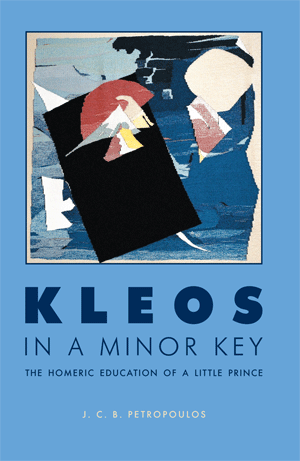Kleos in a Minor Key: The Homeric Education of a Little Prince
As scholars have remarked, the word kleos in the Iliad and the Odyssey alike refers to something more substantive and complex than “fame” or “glory.” Kleos distinctly supposes an oral narrative—principally an “oral history,” a “life story” or ultimately an “oral tradition.” When broken down into its twin constituents, “words” and “actions” or “deeds,” a hero’s kleos serves to define him as a fully gendered social…
As scholars have remarked, the word kleos in the Iliad and the Odyssey alike refers to something more substantive and complex than “fame” or “glory.” Kleos distinctly supposes an oral narrative—principally an “oral history,” a “life story” or ultimately an “oral tradition.” When broken down into its twin constituents, “words” and “actions” or “deeds,” a hero’s kleos serves to define him as a fully gendered social being. This book is a meditation on this concept as expressed and experienced in the adult society Telemachos find himself in. Kleos is the yardstick by which his psychological change was appreciated by Homer’s audiences. As this book shows through philological and interdisciplinary analysis, Prince Telemachos grows up in the course of the Telemachy and arguably even beyond (in book 24): his education, which is conceived largely as an apprenticeship on land and sea, admits him gradually if unevenly to a full-fledged adult kleos—a kleos that nonetheless necessarily remains minor in comparison to that of his father and other elders.
Available for purchase in print via Harvard University Press.
Petropoulos, J. C. B. 2011. Kleos in a Minor Key: The Homeric Education of a Little Prince. Hellenic Studies Series 45. Washington, DC: Center for Hellenic Studies. http://nrs.harvard.edu/urn-3:hul.ebook:CHS_Petropoulos.Kleos_in_a_Minor_Key.2011.
This work is licensed under a Creative Commons 3.0 License.

